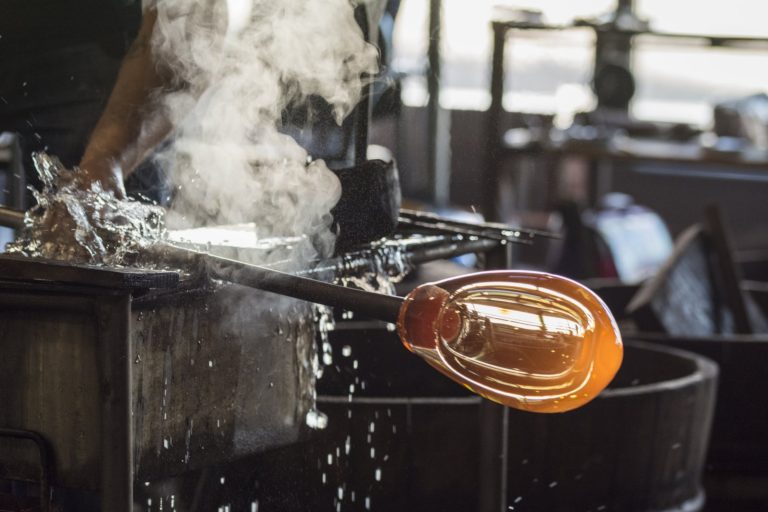Let’s think about a product that has existed for a long, long time: the unassuming yet mighty pen. According to Wikipeida, the earliest pen was probably invented by the Ancient Egyptians over 5,000 years ago, and it has seen a lot of changes in the millennia since. What was once a symbol of wealth and education can now be purchased in packs of a dozen or more for the price of a latte, and they fill up coffee mugs on the desks of millions of people across the world almost as an afterthought.
Despite the commodification of the pen, there is still a robust market for enthusiasts who invest in or collect high-end models, deciding between German and Japanese design; styles like dip, brush, fountain, and rollerball; and materials such as steel, gold, resin, and lacquer. These customers will spend anywhere from $10 or $15 on the lowest end to thousands on the highest end. If you have no interest in elegant pens, you might ask yourself why anyone would even spend ten dollars for a single model when the same money could buy a couple of dozen mass-market ballpoints.
Of course, you know the answer is that people are fanatical about all sorts of things: fine wrist watches, bespoke suits, rare fragrances, etc. It’s all about what you’re passionate about. —Even if you’ve never had a desire for those kinds of products, you would at least understand this idea in the realm of food: if it were only about getting the job done (i.e. consuming enough calories to live), you might drink meal-replacement shakes or eat frozen dinners all of the time. And there are certainly some people who do that, but most of us like the taste of a handmade salad or perfectly cooked steak too much to be so austere.
When you really think about it, most of us are willing to pay a premium for the kinds of products we really care about, which could be anything from cars to smartphones to, yes, even pens. But have you ever stopped to look at it from the other direction? Why do businesses cater to those niche enthusiasts?
Because there’s a lot of money to be made there, you’d probably say. Where there’s are people willing to part with money, there’s a way, right? But it’s more complicated than just wanting to fill every market gap. Let’s consider an example: Pilot makes both mass-market ballpoints as well as carefully crafted fountain pens that costs thousands of dollars. Despite the giant disparity in price, we can guarantee you that they make most of their money on the cheap ballpoints. Their fountain pens likely only contribute a tiny fraction to their annual profit.
So why bother? Why expend so much energy into a product that contributes so little to the bottom line? The safe bet is that they do this this because there are people at that company who are really passionate about pens and are proud of what they make. As such, they’re their own customers. And there’s prestige in producing a high-end, lauded product, especially among your peers.
It’s the same in cars, too. Porsches sell for a lot of money, but their parent is the Volkswagen Group, which makes a lot more money overall selling mass-market automobiles. It wouldn’t surprise you to learn that the people in charge of VW are car enthusiasts too, right? You would assume they’re passionate, and that they’re their own customers, as well. That’s even before we mention the prestige in producing and selling enviable luxury cars. Other businesses seek the same thing in producing fancy watches and gourmet food.
So, let’s turn this thought experiment to your company and what you sell. Have you ever stopped to ask yourself why you’re in the business that you’re in? It’s okay if you say that you got into business to make money—there’s certainly honor in attaining financial security and providing or a family, for example. But if you’re really passionate about what you do, there’s a whole separate level of fulfillment that comes from that kind of pride.
Don’t dismiss this idea if you run a retail store or a franchise for a large corporation, where you might think that since you don’t control the production of the products, it’s hard to be proud of them. Here’s the truth, however: no matter what business you’re in, what products or services you sell, there’s always at least one thing that you deliver that’s unique to you and the people you employ. Your customer experience!
Even the companies that produce luxury goods still rely on more than the products themselves. This is why their products come in beautiful wrappers, are displayed in showrooms, and are sold and supported by well-trained employees. When you care, you really care, and you want the experience to be as great as possible from start to finish.
If nothing else, all business owners should be passionate about delivering that experience first and foremost. Everything else falls into place naturally when you see yourself in the customers you cater to.
At The Brandt Group, the customer experience is literally our passion, as every service we offer—be it mystery shopping or training seminars—is about improving yours. Come find out about what we believe in by contacting us today, and together we’ll help your company deliver customer service that is the envy of your competitors.




Recent Comments